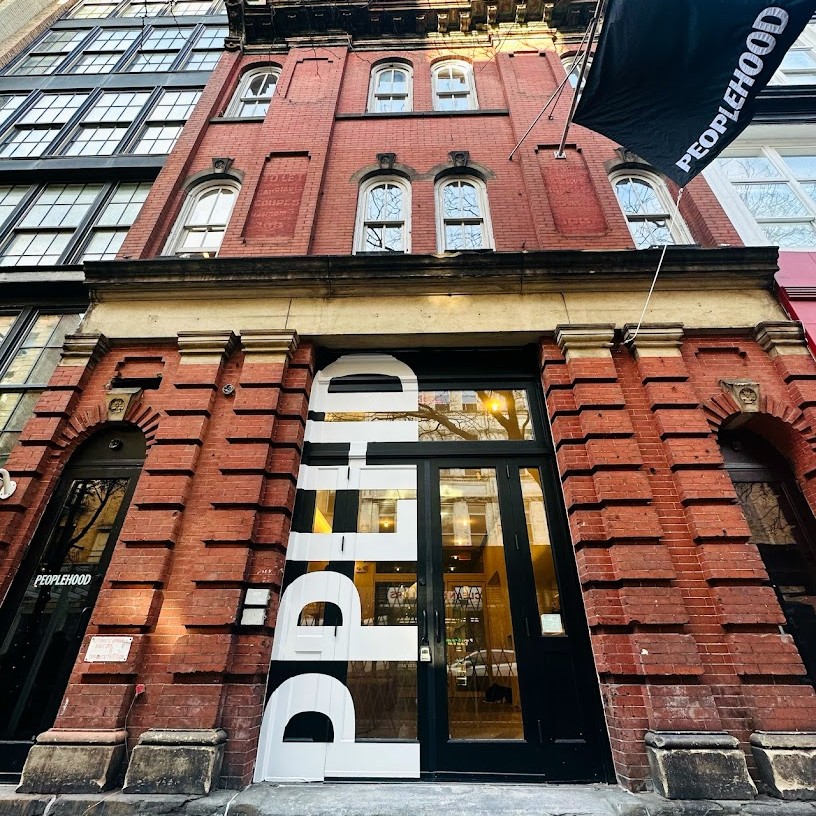
Nearly two decades ago, Julie Rice and Elizabeth Cutler cofounded SoulCycle to reinvent spin. Unlike the massive gym chains that ruled the fitness scene during that era, their boutique concept took into account the mind and body connection by incorporating candlelight and top-notch playlists to keep members motivated. They managed to build a cross-country discipleship of dedicated indoor cyclists, and by 2014, SoulCycle had grown into a nine-figure business. In 2015, both women reportedly walked away with $90 million after selling their company to Equinox.
After some rest, they dove into three years of research for their next venture. In February 2023 they announced the buildout of Peoplehood. It offers and facilitates “Gathers” (digitally or at its Manhattan flagship) which are 60-minute conversations of no more than 20 people, led by a certified guide. The Gathers are categorized under topics like couplehood and motherhood.
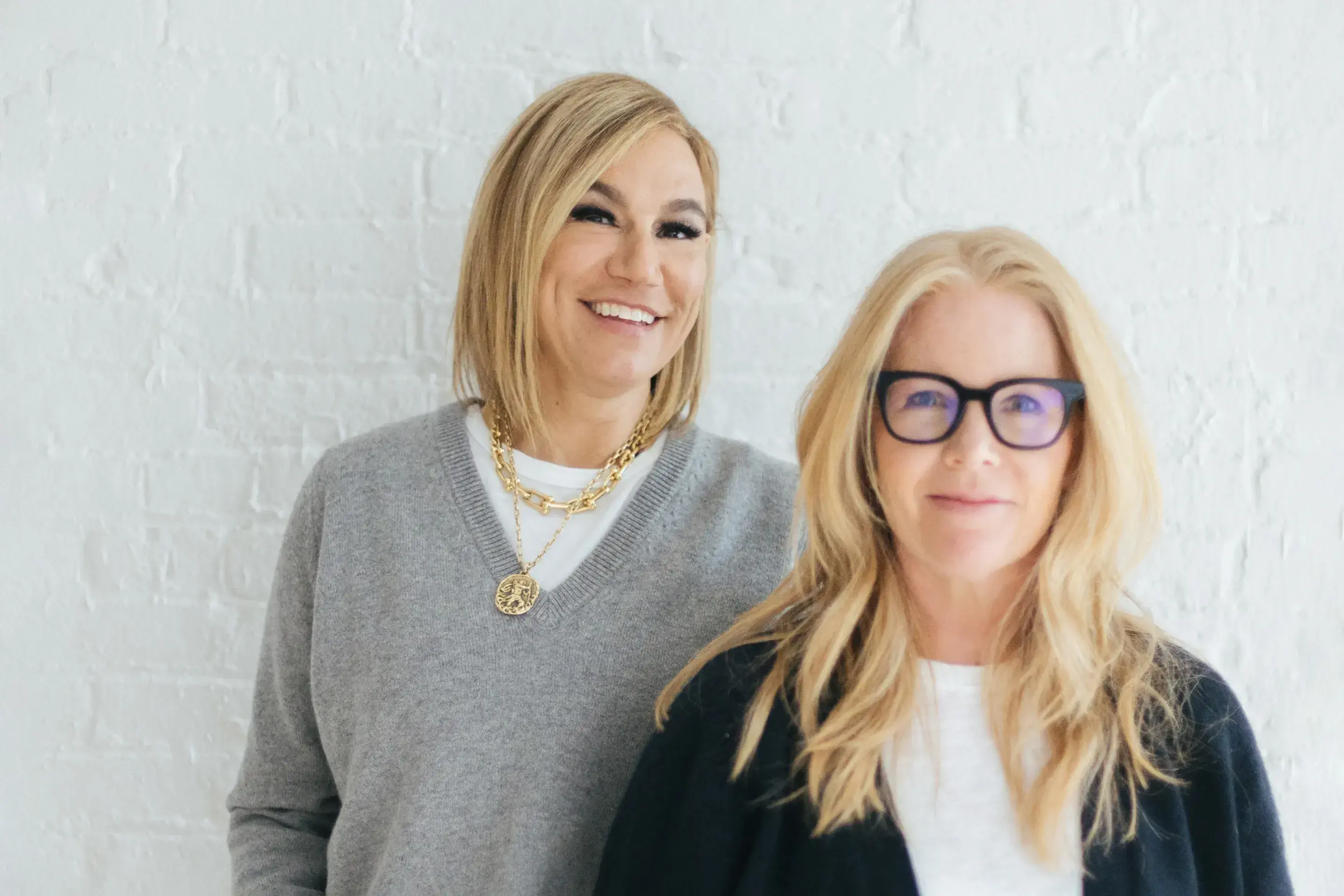
With Peoplehood, the cofounders are essentially taking the same studio model that fueled SoulCycle’s success and deploying it to tackle the loneliness epidemic among young adults. According to a study by the Bureau of Labor Statistics, today's young adults spend 1,000 fewer hours connecting with others in IRL each year compared to two decades ago.
“The world has changed quite a bit since we started SoulCycle,” says Rice. Here, on the first anniversary of her latest venture, she chats with Marie Claire about what it’s like to be back in startup mode, what Peoplehood is, and what it isn’t. (Spoiler alert: it’s not group therapy.)
Marie Claire: Explain the transition from running SoulCycle to launching Peoplehood. Tell us how you came up with this second breakthrough idea?
Julie Rice: When we started SoulCycle, we thought we were launching a fitness business. People came for cardio, to lose weight, and to improve physical health—but that’s not what really happened. People initially showed up for fitness, but ultimately came back for the community and connection they felt to others and themselves in those dark, candlelit rooms.
As the world becomes increasingly disconnected, Elizabeth and I realized we needed to create a place where people could learn the relational skills we were not taught in school. Peoplehood is your classroom for learning how to listen and do relationships better.
MR: How is it going so far? How many employees so far and about how many people are attending the virtuals and in-person Gathers?
JR: We’ve only been open for a few months, but we’re already getting great feedback. People who are coming consistently are learning to process their own thoughts while they’re in a Peoplehood session, but the skills they’re taking with them outside of the rooms are changing the conversations at their dinner tables, with their work teams, friends, kids, and partners.
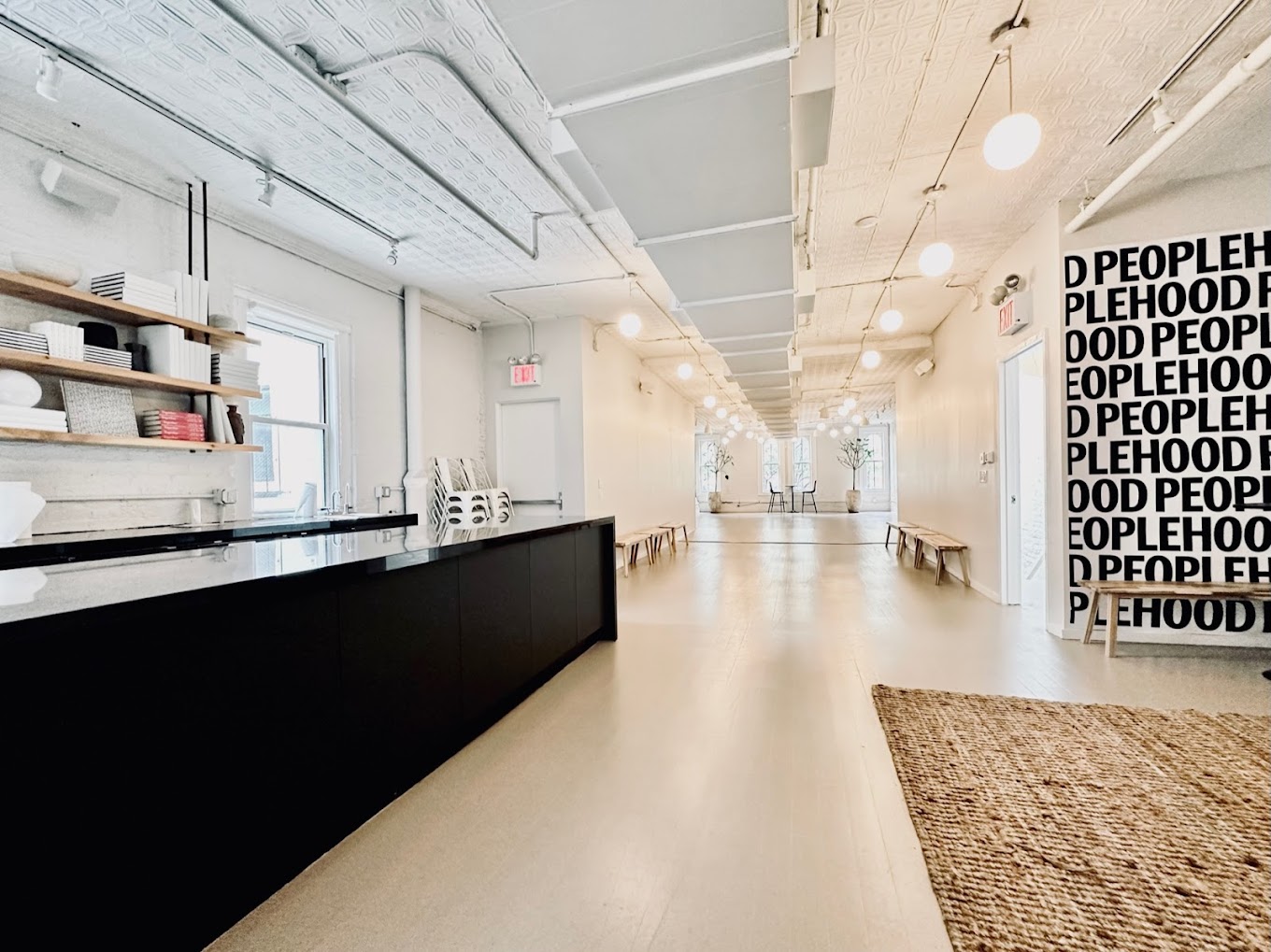
MC: Describe what it was like exiting SoulCycle. What experiences from SoulCycle do you hope to carry over to your new venture?
JR: At our core we are experience designers. Just like each SoulCycle class takes the rider on a musical, spiritual, and physical journey, we considered all of these elements as we created the structure for our Peoplehood Gathers.
Each Gather starts with music and breathwork architected to shift participants from fight-or-flight to a more collaborative brain space. Then we move on to some group sharing and begin our practice of Higher Listening. Higher Listening is listening without interrupting, offering advice, or giving an opinion.
Last but not least, just like SoulCycle, we hope to build an amazing community, have people experience a-ha moments, and leave them feeling better when they leave than when they walked through the door.
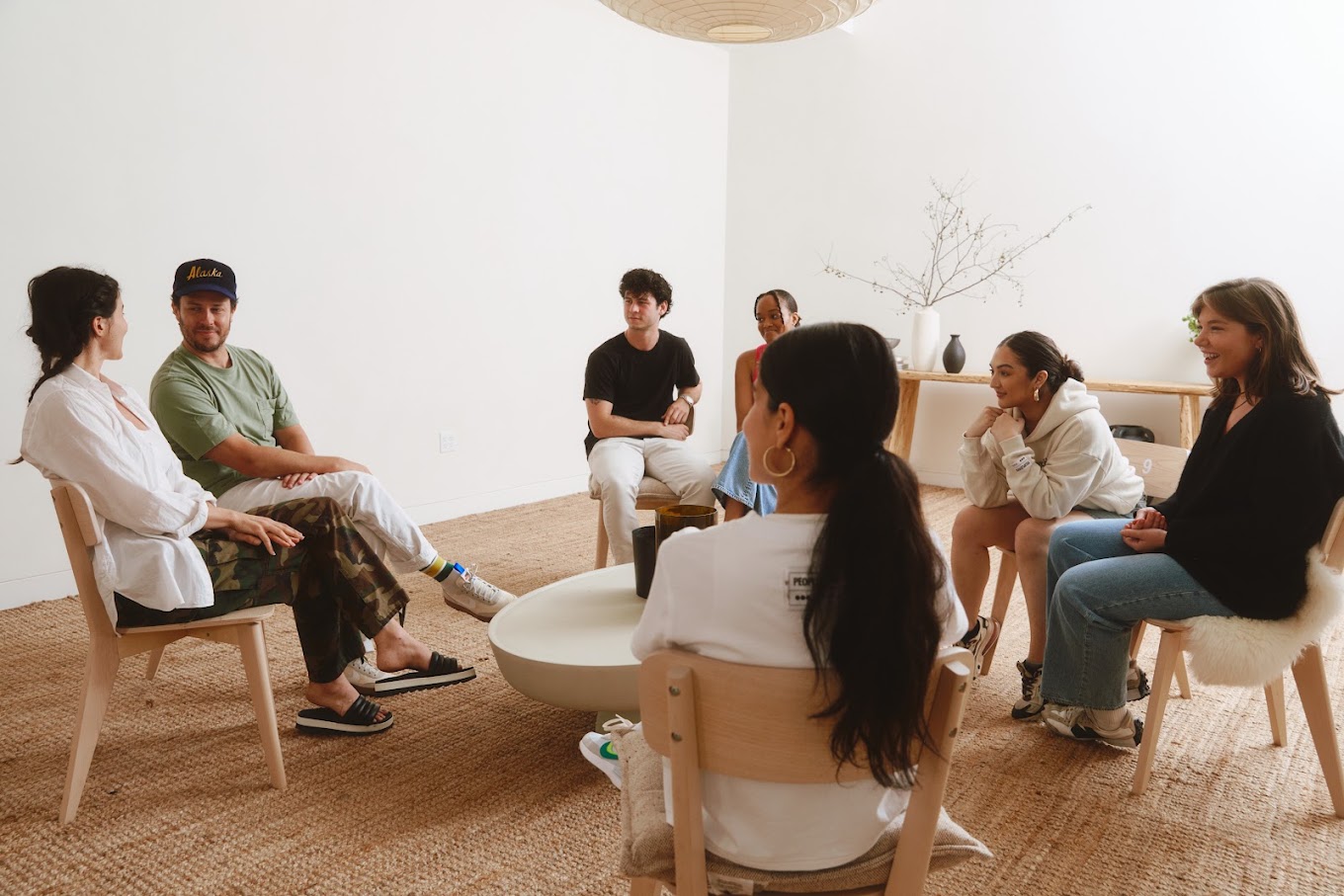
MC: Is Peoplehood basically group therapy? How is it different?
Peoplehood is not therapy. We love therapy but that is not what we do.
Peoplehood is a practice and the best way to think about it is as a workout for your relationships. In a time when 61 percent of American adults self classify as lonely, we believe this practice is more vital than ever.
We want people to leave feeling better than when they walk in and take that magic with them into their everyday lives. The hope is that we help people create new relationships, and strengthen existing ones.
Peoplehood is a guided peer-to-peer, group conversation practice designed to improve our relationships. Our 60-minute sessions called Gathers have up to 20 participants, and a different intention every time. We speak freely and practice listening deeply. There’s music and breathwork to ease you into the experience.
Something that makes Peoplehood unique is our Guides. Our Guides are a diverse group of humans handpicked and rigorously trained to deliver an exceptional experience. They’re storytellers, super-connectors, conversational DJ’s, and ultimate empaths with big hearts and even bigger smiles. Real people who know what you’re going through because they’ve been there, too.
MC: How are you getting creative with programming?
JR: In a perfect world, people are practicing at Peoplehood weekly. We’ve created many different formats and types of cohorts—so whether you’re looking to work on existing relationships or create new ones, we’ve got the group for you.
For example, people can come to Couplehood gathers with a partner and spend quality time navigating the joys and challenges of your romantic relationship.
And for any singles feeling stuck in their dating life and need guidance for how to make effective progress, there is Singlehood where we talk dating apps, heartbreak, ghosting, and breadcrumbing as well as finding compassion around being single. There are also Motherhood and Female Founderhood gathers as well.
We are starting to work with companies at large and have some exciting news to share in the next few months on how we're helping employees, execs, and how people communicate at work.
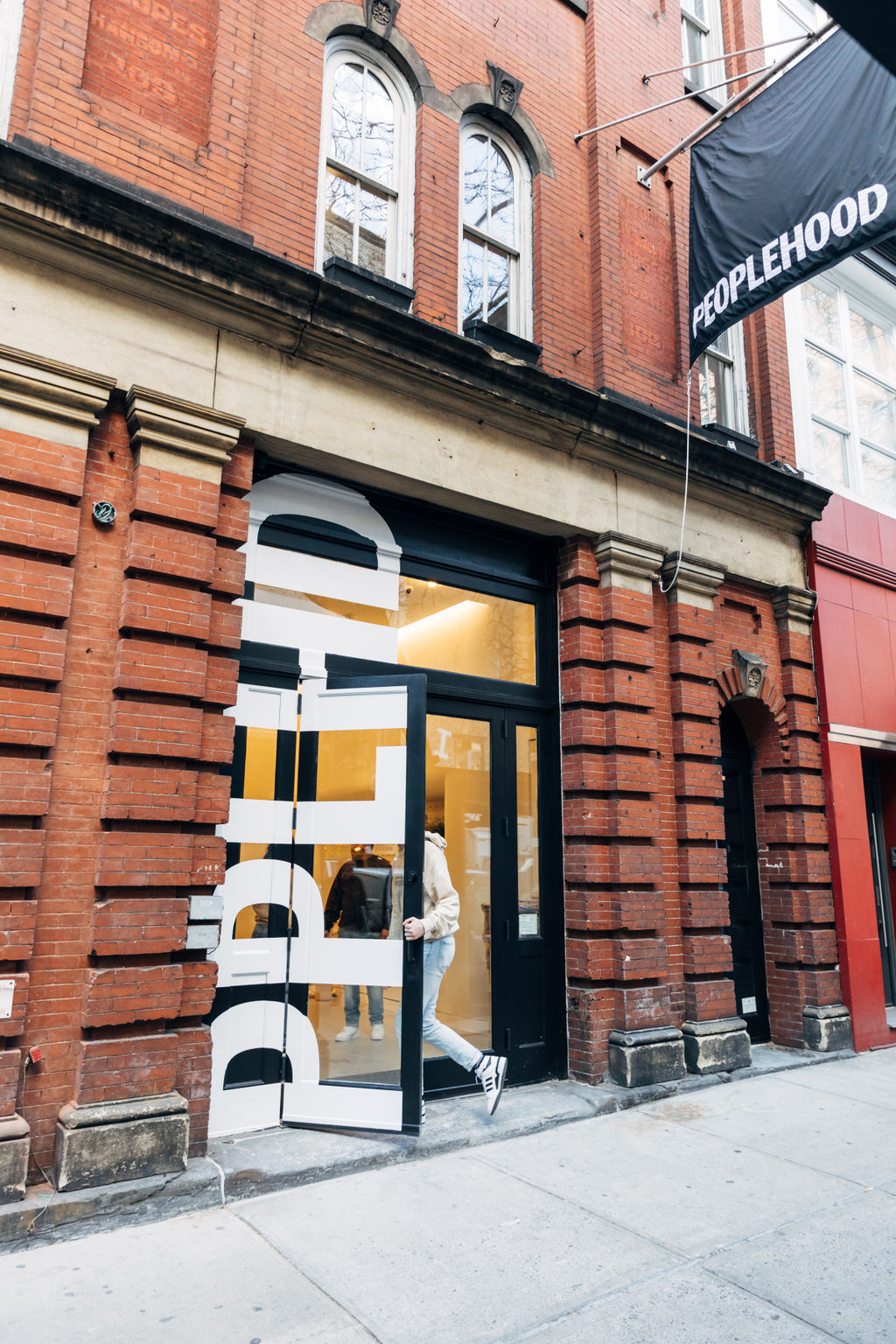
MC: What has been the most challenging part of launching this second venture? What has been surprising to you as serial entrepreneurs?
JR: Being a second-time entrepreneur is much harder than creating something the first time. With SoulCycle we had a very simple business goal: to see 100 people a day. Each small victory was a thrill. And we were very focused on making sure that each customer left feeling like they were part of our family
After building and scaling a business like SoulCycle you almost have to turn off your peripheral vision and remind yourself to simply focus on the task in front of you. It can be frustrating to feel like things are not growing fast enough so it's important to continuously remind yourself that the goal is always to make each and every customer so happy that they simply have to bring a friend.
MC: When it comes to tackling the mental health crisis, why are the traditional approaches not enough?
JR: At Peoplehood we’re focused on social health. We believe that loneliness and lack of connection are a real cause for the decline in people’s mental health. Our goal is to give people the tools to create fulfilling relationships which allows them to live happier and healthier lives. Research from the Harvard Study of Adult Development has proven that the strength of our relationships is the *best way to predict our long-term happiness and health–more than diet, sleep, exercise, stress management, etc. Peoplehood was the natural evolution from SoulCycle because it put relational fitness in the front row.
The U.S. Surgeon General also released an advisory in May 2023 raising attention to the public health crisis of loneliness, isolation, and lack of connection in the country. Surgeon General Dr. Vivek Murthy said, “Social connection is a fundamental human need, as essential to survival as food, water, and shelter.”
MC: Do you feel the pressure to grow Peoplehood into the same sensation that SoulCycle became?
JR: When you’ve experienced success, of course it's natural to want to top your last business, but the truth is when we think of success at Peoplehood, we hope that five years from now people look up from their phones when they are in conversations at the dinner table. We hope everyone has someone they can call if they need support or just someone to listen. We hope that people have the tools they need to work through conflict or disagreements. But we do know one of the keys to building a community is to make every person that walks through your door feel like they’re seen, heard, understood and appreciated—that they matter.







